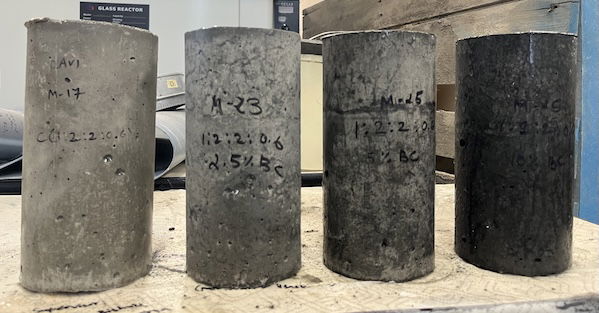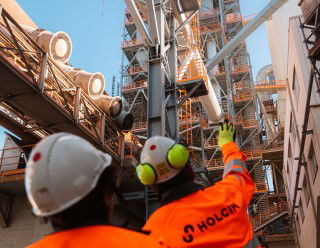Researchers at the University of Saskatchewan’s (USask) College of Engineering are investigating whether biochar—a carbon-rich material made from burning agricultural waste—can help reduce the environmental footprint of cement production.
By partially substituting cement with biochar derived from non-edible plant waste such as flax or wheat straw, the team hopes to both cut emissions and lock away carbon. “Normally, this kind of plant waste is left on the field,” said PhD student Ravi Patel, who is leading the study. Patel's research has recently been published in the paper "Study of biochar in cementitious materials for developing green concrete composites." in Scientific Reports 15, no. 1 (2025): 22192.
The researchers tested concrete samples with varying amounts of biochar, examining durability and microscopic structure. Using the Canadian Light Source synchrotron facility, they found that biochar-enhanced concrete was stronger and less porous than standard mixes.
So far, the material has been studied over 56 days. The next step will be testing its performance over years, given that concrete structures are built to last decades.
If successful, the approach could make construction more sustainable by reducing cement use, repurposing farm waste, and extending concrete’s lifespan. “It feels really good to get a positive result so that we can actually help address climate change,” Patel said.

